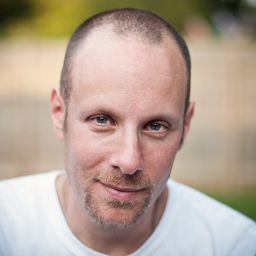Editor’s Note: Jeff Pearlman is the New York Times best-selling author of eight books. His ninth, “Three Ring Circus: Shaq, Kobe, Phil and the Crazy Years of the Lakers Dynasty” comes out in September. Follow him @jeffpearlman. The opinions expressed in this commentary are those of the author. View more opinion articles on CNN.
A few hours ago I was sitting inside an Orange County coffee shop, happily eating oatmeal and typing away, when a friend texted me this:
News reports that Kobe Bryant is dead.
I didn’t believe it.
I. Still. Don’t. Believe. It.

For the past two years, I’ve been researching and writing a book about the 1996-04 Lakers – aka the Shaq-Kobe-Phil years. When a writer digs deep into a project and devotes the majority of his days and hours to understanding a group of people, the idea that one of the individuals might suddenly cease to exist … well, it makes no sense. It just doesn’t compute, in the way JFK’s death didn’t compute for my parents; in the way Len Bias’ death didn’t compute for me at age 14.
So, again, I still don’t believe it.
The Kobe Bryant of my book is a complex figure – perhaps the most multifaceted athlete I’ve chronicled since my Walter Payton biography of a decade ago. He’s far more than the NBA’s fourth all-time leading scorer. Far more than the five NBA titles and 18 All-Star nods. Coming out of Pennsylvania’s Lower Merion High in 1996, he entered the NBA Draft with a cockiness that was equal parts offputting (“Kobe Bryant has decided to skip college and take his talents to the NBA,” he said at a press conference inside the school gym) and remarkable. A prep teammate told me the story of a young Kobe doing sprints on a 95-degree Fahrenheit day, then sitting inside a car with the heat blasting – just to build his endurance.
Upon joining the Lakers, he arrived in Los Angeles knowing (not just believing – but knowing) he was the best player on the team. Really, the league. Which was simply untrue. These were the Lakers of Shaquille O’Neal and Nick Van Exel and Eddie Jones. Bryant, meanwhile, was raw and untested. His defensive skills were poor. His shot selection was maddening. He liked to pass as much as he liked to eat cardboard (he did not like eating cardboard).
Yet he possessed something few had witnessed before. Namely, a complete, total lack of self-doubt. Bryant would shoot. He would miss. He would shoot again. In Game 5 of the 1997 NBA Western Conference Finals at Utah, Bryant infamously uncorked four air balls in the late stages of a 98-93 loss. It was the type of performance that has ruined many a young athlete. Yet that night, shortly after the Lakers’ plane landed in Los Angeles, Bryant headed to nearby Palisades High to launch jumper after jumper until the sun rose.
Unlike Laker teammate O’Neal, his equally famous – but much more gregarious teammate – Bryant didn’t concern himself with comradery, or clubbing or bowling with pals. Once, O’Neal treated the entire roster to a fancy meal at a seafood restaurant on the road. Bryant arrived 30 minutes late, armed with headphones and a book, and found his own table. Another time, he ran into one of his teammates, veteran Robert Horry, at an eatery, and was shocked to see him nursing a beer. “Bob,” he said, “how can you drink the night before we play?” Horry was dumbfounded. The game was 24 hours away – and it was the preseason. “That,” said Rick Fox, the longtime Laker, “was just Kobe. He didn’t always get it.”
O’Neal dreamed of serving as Bryant’s big brother. Bryant didn’t want a big brother. Or big uncle. Or someone to confide in. His favorite movie – watched repeatedly on flights – was “The Ten Commandments” with Charlton Heston. His favorite pastime was jotting hip-hop lyrics into a pad. Unlike far too many athletes, he was constantly considering what would come after the game ended. He had plans – big plans. To be a mogul. To be a forward thinker. To be a leader.
He was famously accused of raping a Colorado hotel clerk in 2003, and the ensuing legal drama often felt O.J. Simpson-esque in scale and magnitude. For many, it seemed to signify the end of Kobe Bryant as a spokesperson, as a hero, as a star. Even after the case was settled out of court. How would anyone ever cheer for Kobe Bryant again? How would anyone believe in him?
Yet – they did. As Bryant’s career wound toward its conclusion several years ago, the star who seemed to only crave victory and self-glory started to lighten up. He would laugh, joke, engage, poke, prod. He goofed around with teammates; made fun of his old legs and declining skills. Marriage, clearly, had been great for him, as had the births of his four daughters. He was, despite reports to the contrary, human. And increasingly self-aware.
And now, at age 41, he is gone, alongside Gigi, the 13-year-old daughter he coached.
Just when life was getting good.





















